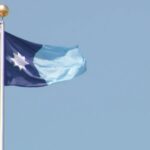Wave of anonymous bomb threats targeting schools, which often serve as polling stations, has fuelled anxiety ahead of legislative elections due on Sunday.
Bomb threats have been sent by email to over 20 Bulgarian schools and the threat is ongoing, interim Interior Minister Ivan Demerdzhiev said on Wednesday, describing the actions as a hybrid attack in order to create chaos ahead of April 2 general elections.
On Tuesday, the Foreign Ministry said Russian meddling was suspected in the coordination of the signals, though the Russian embassy in Sofia denied involvement. On Wednesday, Demerdzhiev clarified that investigations pointed to a Russian role but not necessarily to the Russian state.
Interim PM Galab Donev has set up two working groups to establish a procedure on the safety of the schools which are about to host many voters on Sunday, casting ballots, and to update the National Counter-Terrorism Plan.
Donev said the threats were designed to stoke fear: “No matter what anyone tells you, it’s not dangerous to vote,” Donev told media on Wednesday.
The Interior Minister confirmed an increased police presence around schools on Saturday in order to secure the voting process the next day.
Bozhidar Bozhanov, “We Continue the Change” member and former Minister of Electronic Governance, tweeted that the problem might lie in the low security levels of some Bulgarian email services such as abv.bg and mail.bg, popular among local users nearly two decades ago but still widely used by schools and institutions. He recommended using Microsoft’s Office365 service for which the Ministry of Education has granted a license but is rarely adopted.
The threats started on March 27 and were sent to schools in Sofia, Burgas, Varna, Pleven and Yambol.
In Bulgaria, anonymously calling schools about a bomb alert has been a popular prank in the past to abort school activities and exams. But recent events seem unconnected to such pranks and have gone on for three days.
Incidents add to election jitters
Bulgarians head to polling stations this Sunday with limited hopes that this latest election round will resolve two years of political turmoil, which started when GERB leader Boyko Borissov failed to secure a majority in 2021.
The cycle saw the rapid rise and fall of “There’s Such a People”, led by popular TV personality Slavi Trifonov, then in late 2021, the breakthrough of Kiril Petkov’s “We Continue the Change“, which assembled a shaky coalition promising reformist politics.
This cabinet was ousted following a no-confidence vote after “There’s Such a People” moved to the opposition, paving a way for President Radev to become de facto leader of the country through his series of interim cabinets – and for GERB’s comeback after the October 2022. elections. However, in late 2022 Borissov found himself in a parliament as fragmented as in early 2021.
Petkov’s time may come again, according to some polls. Market Links’ survey from March 29 put his “We Continue the Change” / Democratic Bulgaria in the lead with 23.7 per cent, with GERB in second place on 22.3 per cent support. After another round of inconclusive coalition talks, the President scheduled elections for April 2.
Source: Balkan Insight
















